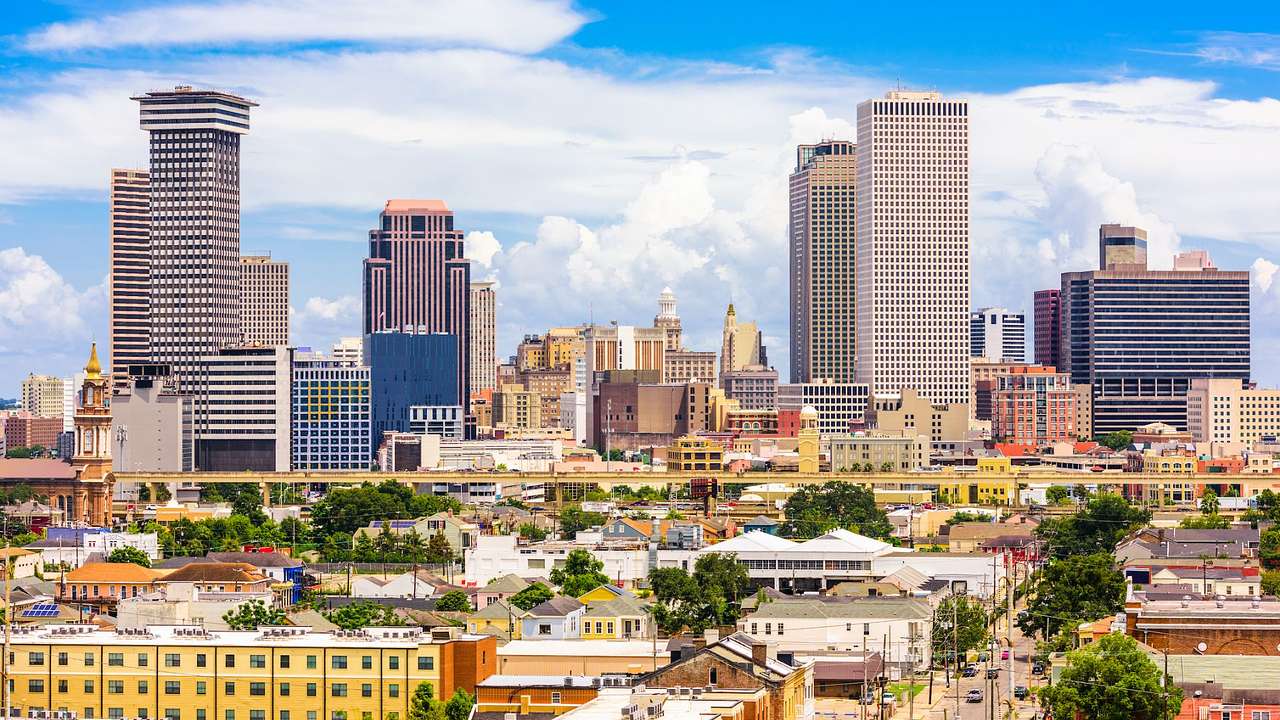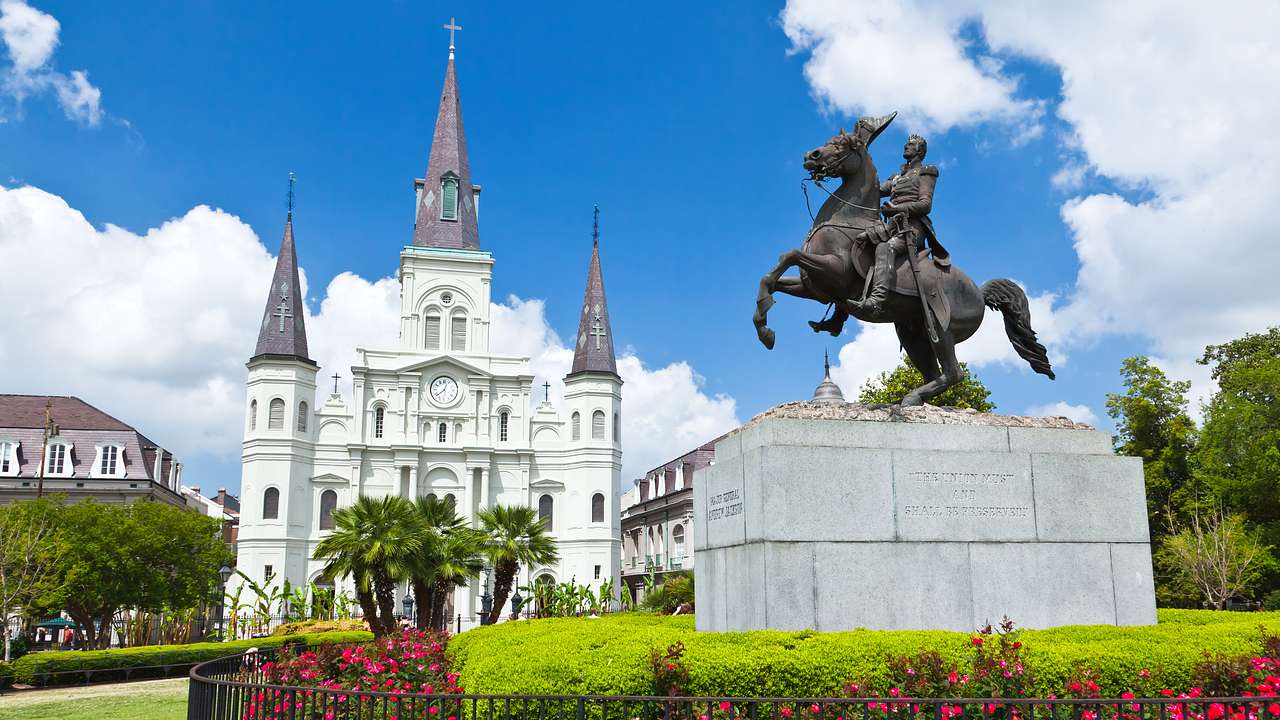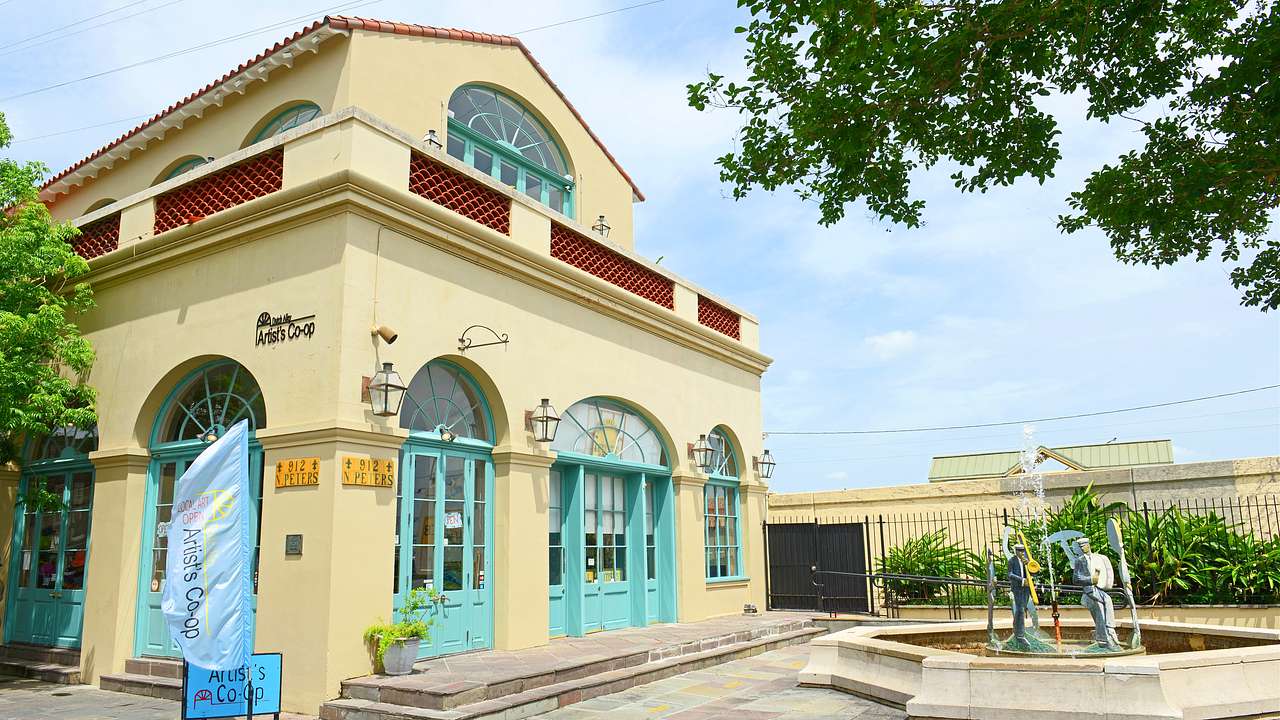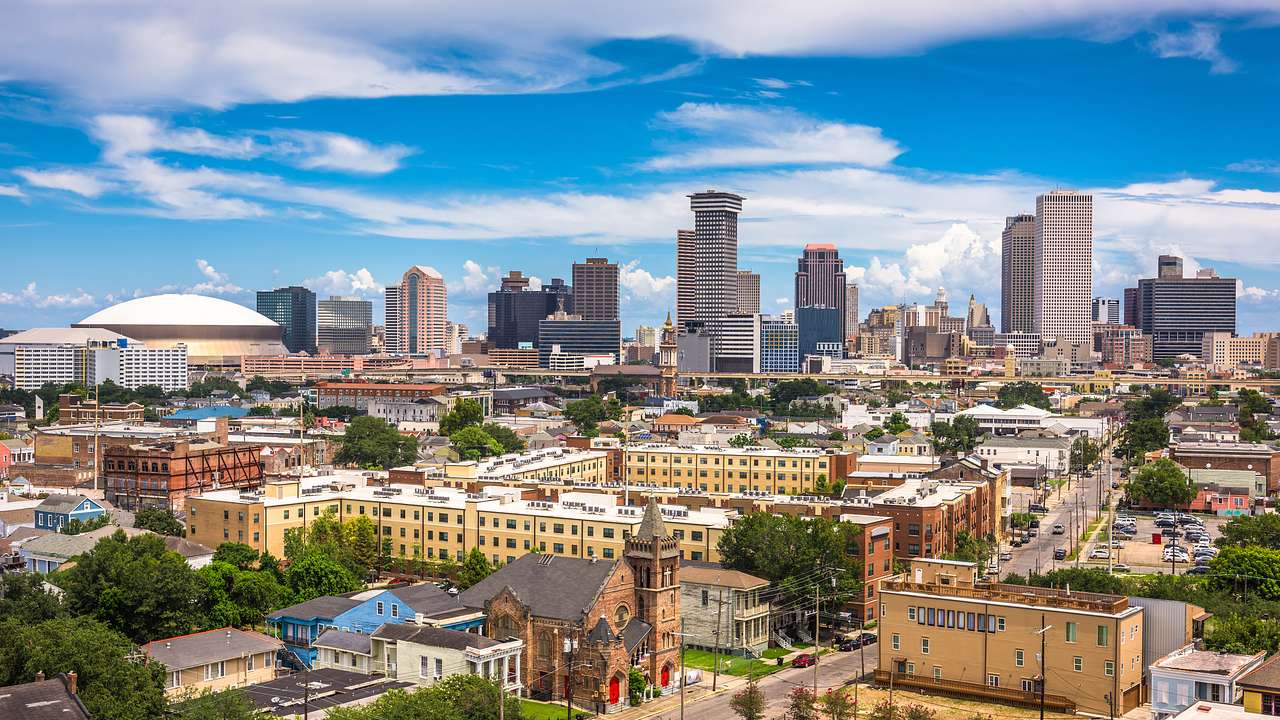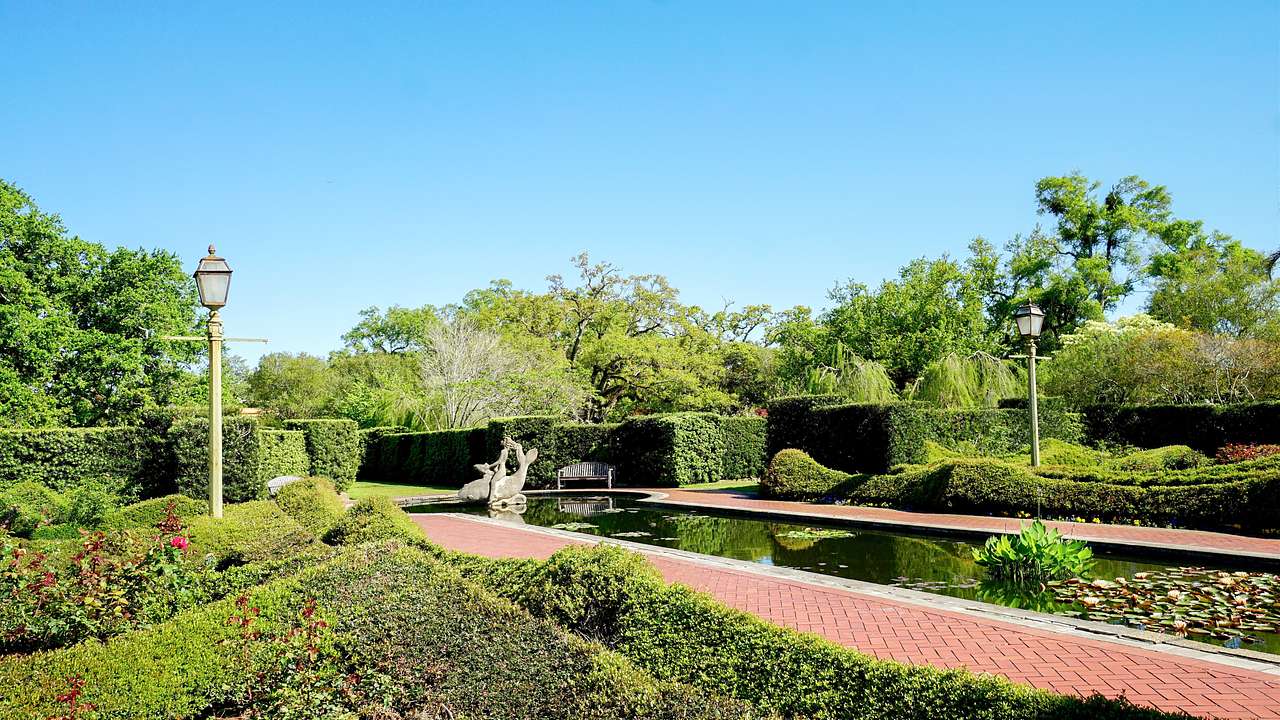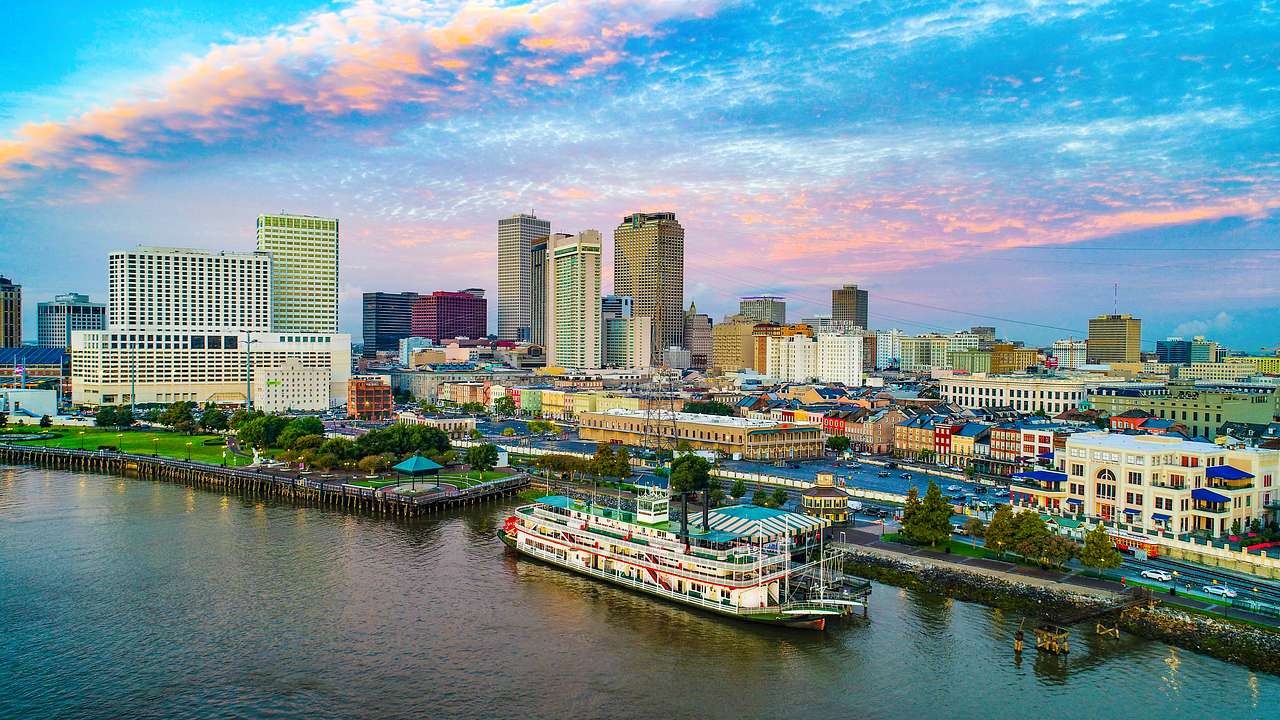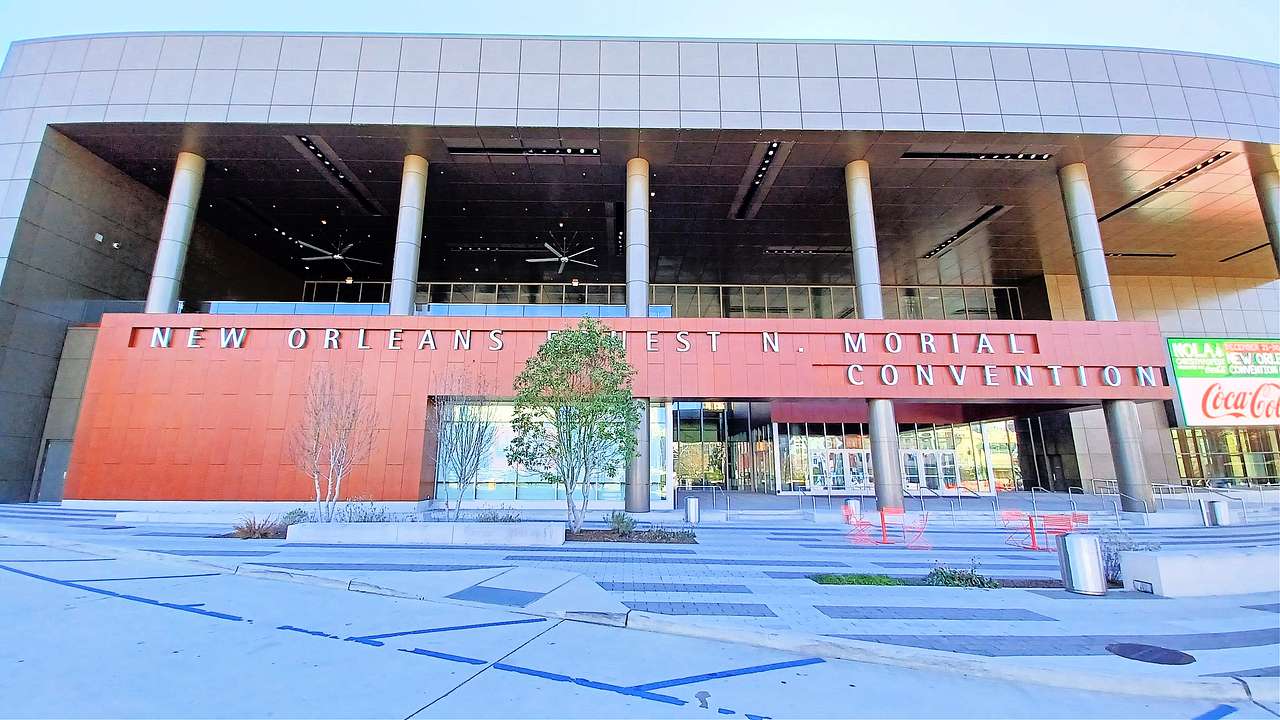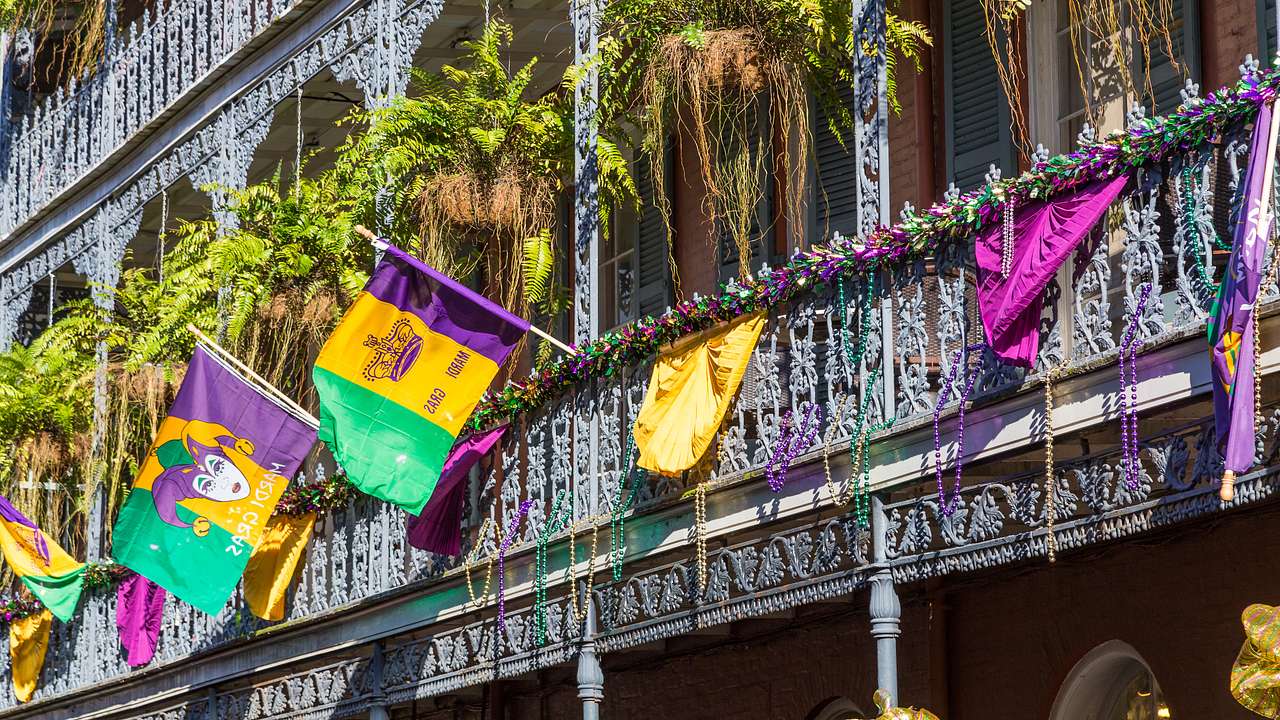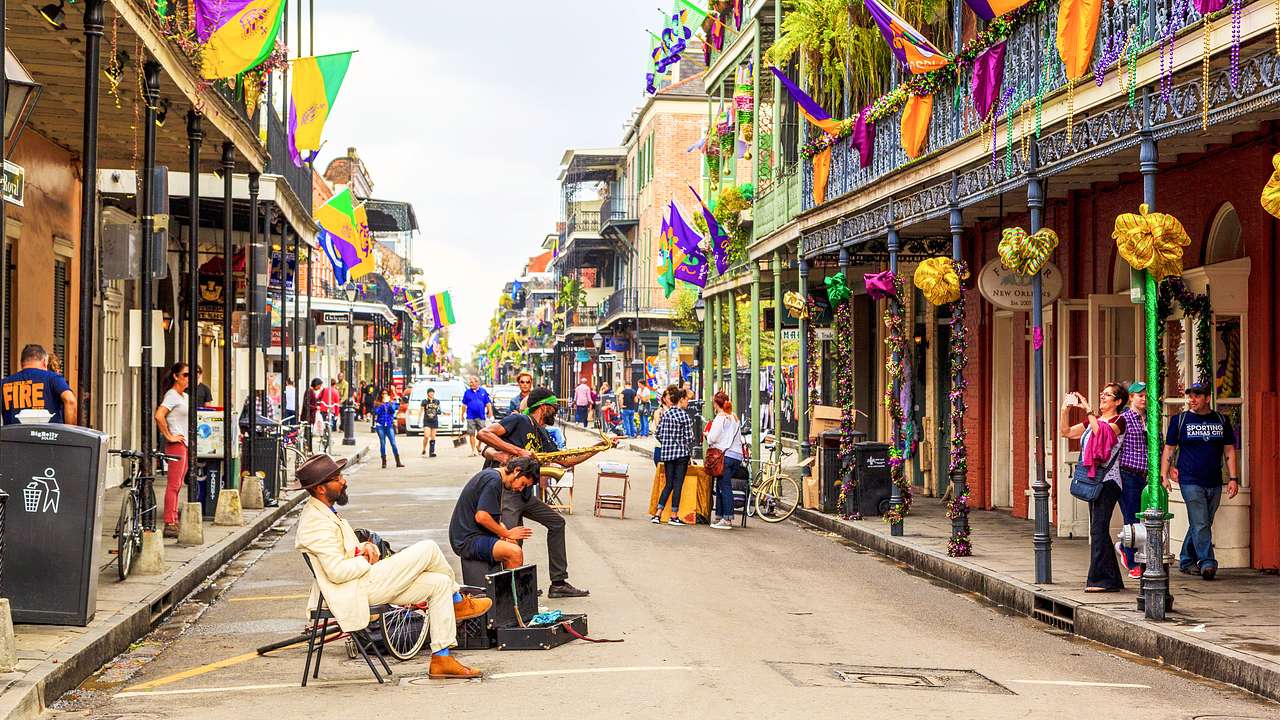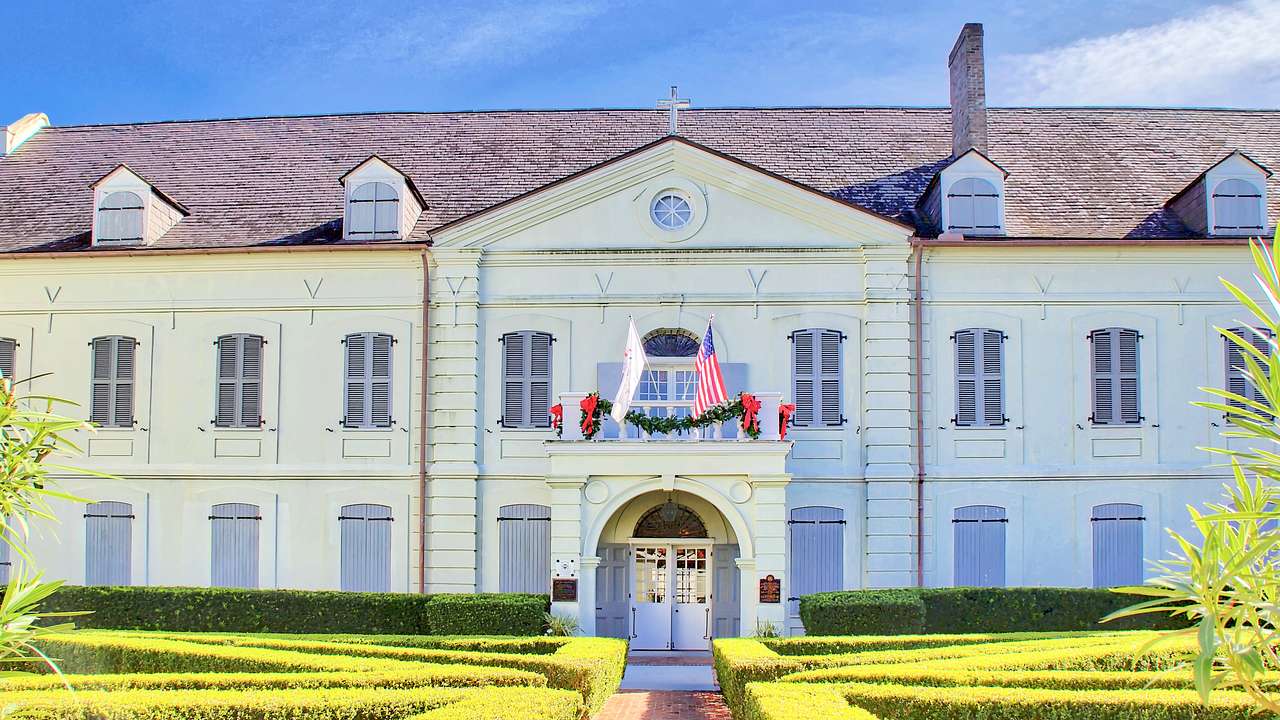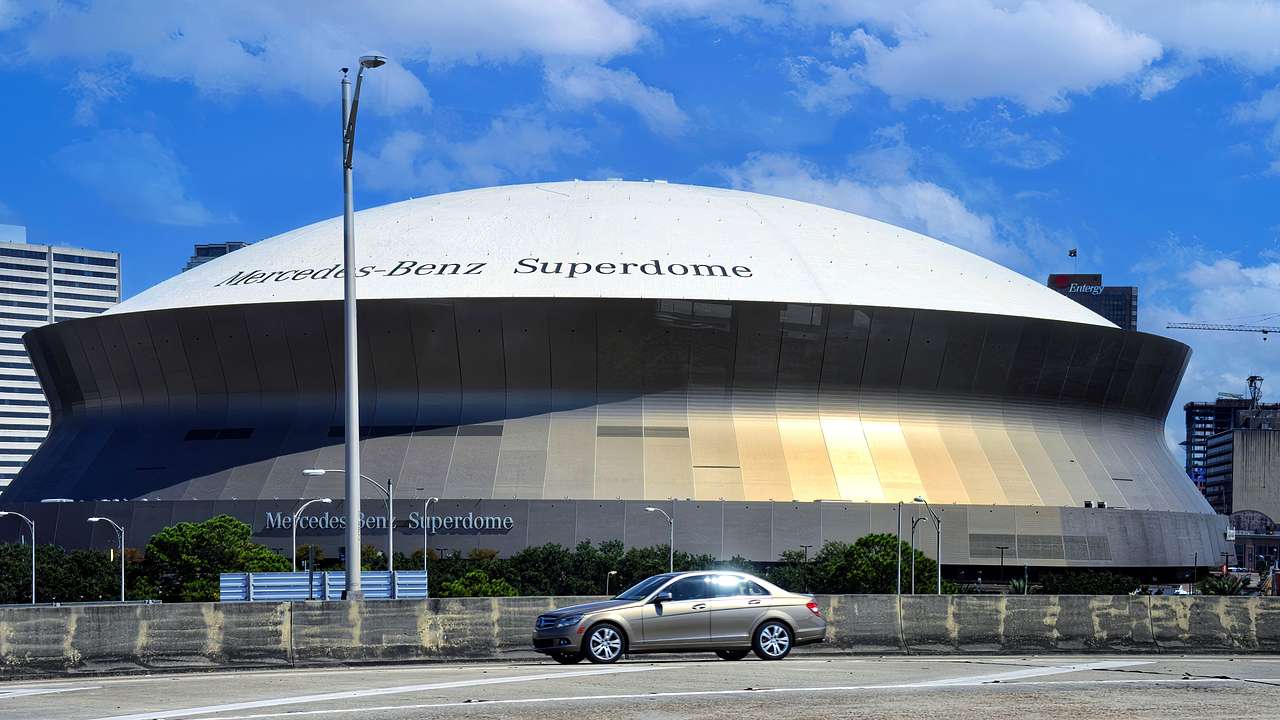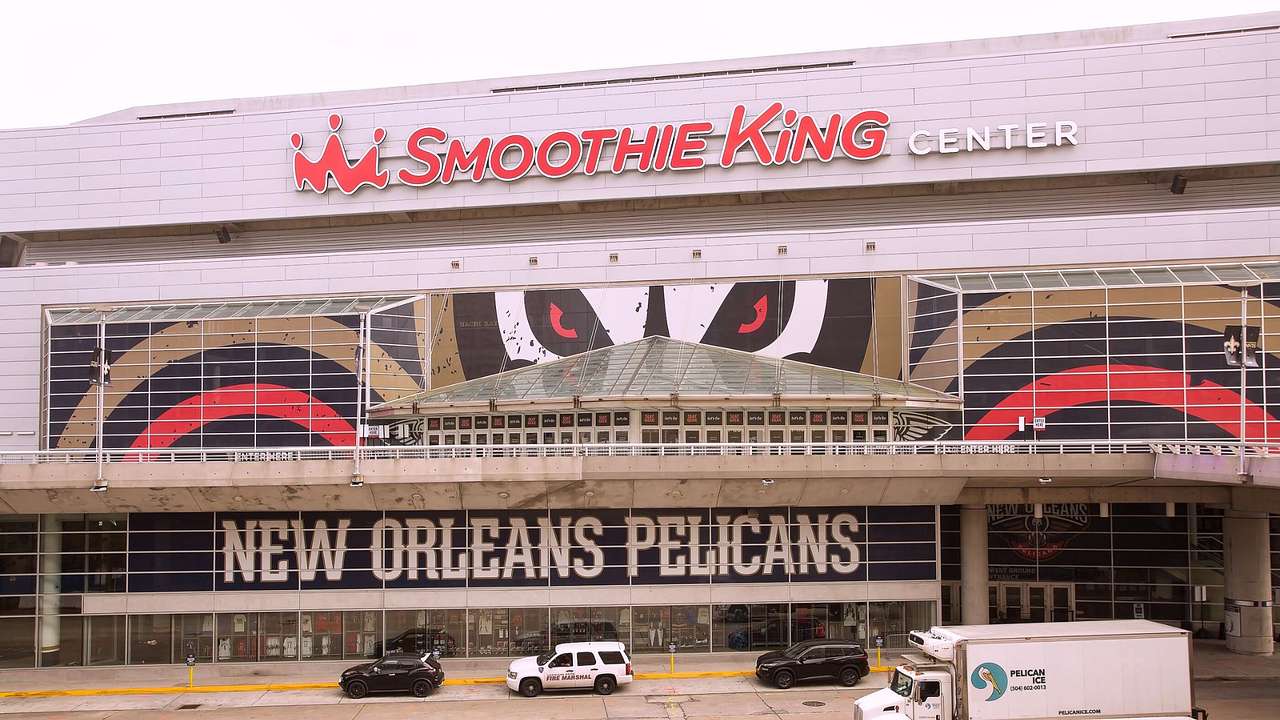22 New Orleans Nicknames That You Should Know
Destguides may receive commissions from purchases made through affiliate links in this article.
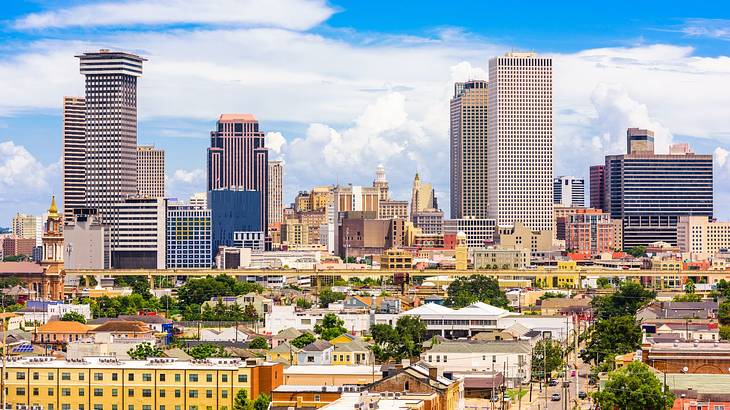
Think of New Orleans, and the first thing that will probably come to mind is Mardi Gras. While Mardi Gras is an important celebration in New Orleans, this city is famous for more than its extravagant annual parade.
New Orleans was founded by the French and ruled by the Spanish before becoming part of the United States. There have also been influxes of migrants to the city throughout its three-hundred-year history. They're all factors that have fused to create a culture in New Orleans that is unique in the US. Over the years, New Orleans has been tagged with multiple monikers that reflect its melting pot of a society.
In this article, you'll discover the most popular New Orleans nicknames like Big Easy, Saint City, and Convention City. You'll also get an insight into the origins of those monikers and learn why New Orleans was blessed with them. So, if you want to learn something new about NOLA, keep reading for 22 unique and interesting nicknames!
22 Nicknames for New Orleans
- Big Easy
- Big Greasy
- Birthplace of Jazz
- Big Sleazy
- Chopper City
- City of Yes
- City of Second Chances
- City That Care Forgot
- City That Never Sleeps
- Crescent City
- Convention City
- Gumbo City
- Crawfish Town
- Mardi Gras City
- Land of Dixie
- City of a Million Dreams
- Nola
- Paris of America
- Northernmost Caribbean City
- Saint City
- Pelican City
- Necropolis
New Orleans Nicknames Video
Check out our highlights video of New Orleans nicknames.
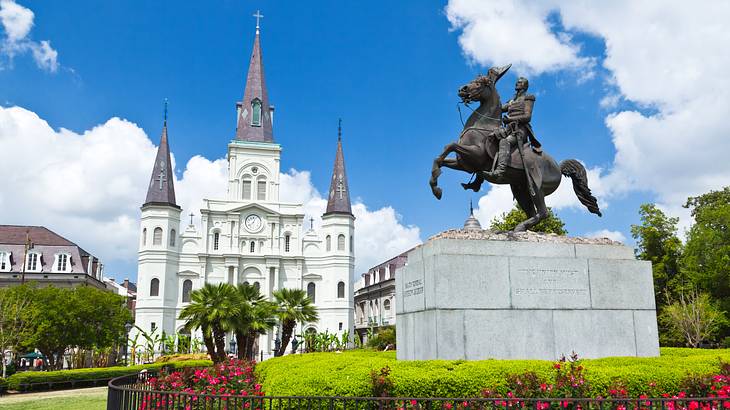
Big Easy
The Big Easy is the most common nickname associated with New Orleans. There's no concrete evidence of how the name was first generated, but plenty of theories exist.
One theory is that it came about because of the easy-going, slower pace of life in New Orleans compared to other major cities in the US. Another is that when it was hard for musicians to get work elsewhere, it was easy in New Orleans. Wherever the name originated from, one thing is for sure - New Orleans is, and always will be, the Big Easy.
Big Greasy
Big Greasy is an adaptation of the New Orleans moniker, Big Easy. It first appeared in 1990 when it was used in a headline in the Atlanta Journal-Constitution.
The newspaper article used the term to broadly reference the amount of fried food consumed in New Orleans. After the 2010 Deepwater Horizon oil spill and the 2022 Collins Pipeline Co. diesel leakage, the nickname Big Greasy had a whole new meaning.
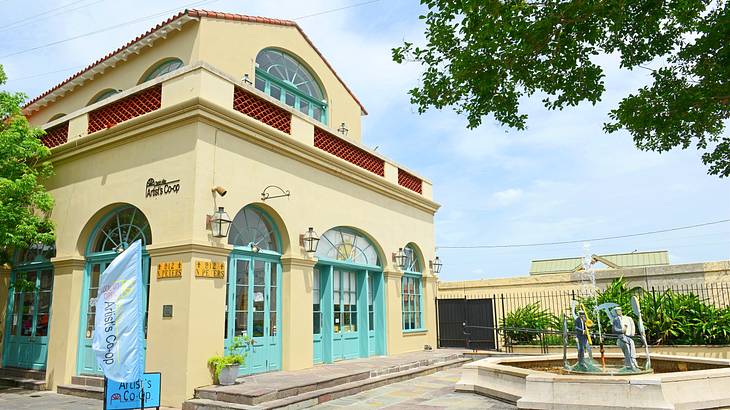
Birthplace of Jazz
New Orleans is known as the Birthplace of Jazz because the genre was created there. In the late 19th to early 20th century, when musicians from different ethnic backgrounds merged their African and European styles, jazz was born.
In the early days of its existence, this innovative style of music was often called Dixieland jazz. Notably, a fun fact about New Orleans is that Louis Armstrong, one of the genre's most influential performers, was born and began his music career in New Orleans.
Big Sleazy
The Big Sleazy first appeared as a revamp of Big Easy in a series of crime novels written by James Lee Burke. While its origin was fictional, Big Sleazy is a nickname that's been adopted to describe the corrupt culture of the city. However, being known as the Big Sleazy of Louisiana is a reputation the city authorities are trying hard to lose.
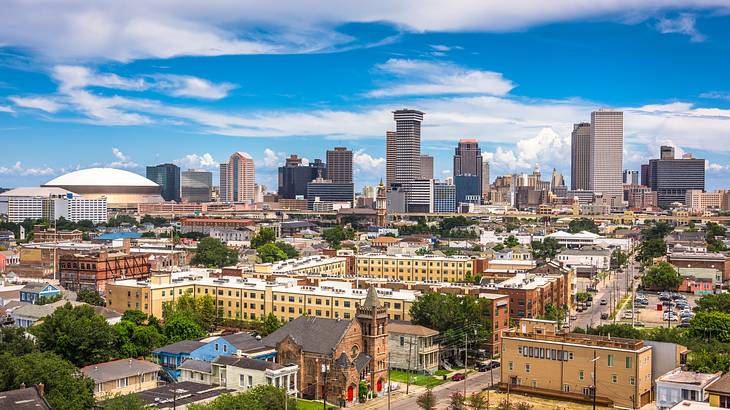
Chopper City
New Orleans earned the nickname Chopper City because of a locally-born rapper. Christopher Noel Dorsey, whose stage name is Baby Gangsta (B.G.), rapped about New Orleans on his early album releases.
Chopper was the urban slang B.G. used in his lyrics to refer to a firearm such as an AK-47. Ironically, while his music was a major success, B.G. is currently serving a prison sentence for possessing stolen weapons.
City of Yes
The City of Yes is a recent addition to the list of nicknames New Orleans has acquired over the years. The phrase was first mentioned by TV presenter Rachel Maddow in 2010 during coverage of the destruction caused by Katrina.
A few years later, the city's mayor, LaToya Cantrell, reintroduced the slogan. Cantrell hoped using the slogan would combat negativity produced by the city's internet URL – cityofno.
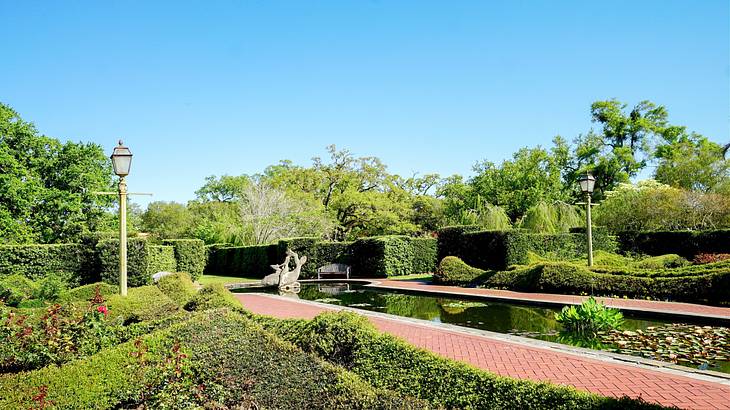
City of Second Chances
Not everyone walks the right path in life. Whether individuals have found themselves incarcerated, jobless, or homeless for whatever reason, New Orleans society doesn't turn its back on them.
Because of the number of rehabilitation programs available to its residents, like reentry programs for those leaving prison, New Orleans has become known as the City of Second Chances. The programs help individuals reintegrate into society after difficulties, providing them with a second chance.
City That Care Forgot
While the City That Care Forgot is not a very commonly used nickname for New Orleans these days, it was more popular in the past. Its exact origins are uncertified, but it's thought the saying dates from around the early 20th century.
It was during that era the phrase was used in a publicity campaign for the St Charles Hotel. The phrase in the advertisement, the city care forgot, was intended to imply that New Orleans was somewhere visitors could forget their worries.
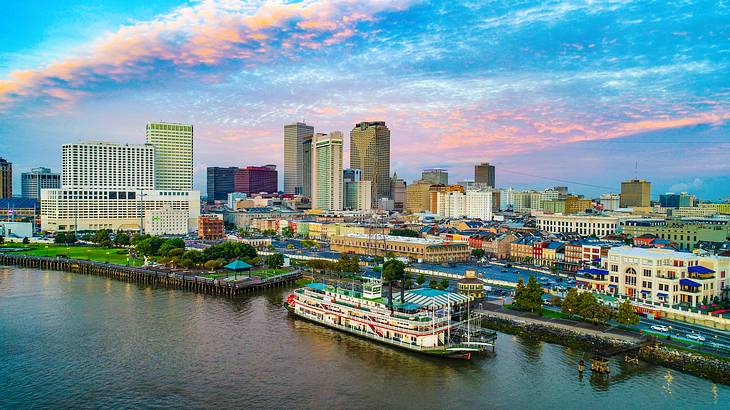
City That Never Sleeps
The City That Never Sleeps is a nickname that New Orleans once well-deserved. From the mid-1800s, the city was renowned for its exuberant nightlife. The spot that gave truth to this nickname was Bourbon Street in the French Quarter, where partying didn't stop until the sun came up.
However, other cities across the country have since become more synonymous with the name, like New York City and Las Vegas. Despite this, you can still party all night if you really want while in NOLA!
Crescent City
Crescent City is a New Orleans nickname that's been in use since the city was founded in the early 1700s. It came about simply because the Vieux Carre, the first part of the city to be constructed, was built on a bend of the Mississippi River.
The river hasn't changed its course, and that crescent-shaped curve still winds through the Louisiana landmark that's now known as the French Quarter.
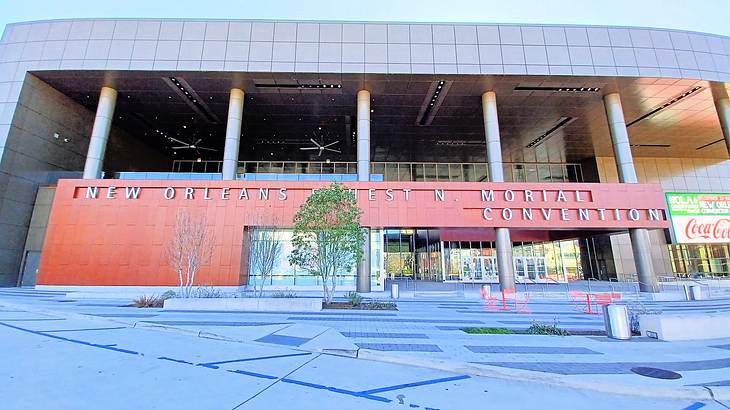
Convention City
New Orleans has been hosting conventions for almost 150 years. Even way back in the late 1890s, newspapers of the time were publishing articles on its convention hosting merits.
Among the city's modern convention-hosting attributes is the Ernest N. Morial Center. The mega-center covers over one million square feet, making it the sixth largest in the country. The distinctive center is rapidly becoming one of the new landmarks in New Orleans.
Gumbo City
Gumbo City is a nickname of New Orleans with dual meanings. Gumbo is a hearty stew made from seafood, meat, and vegetables. It's the state cuisine for Louisiana and is consumed in copious quantities in New Orleans. The city even has its own version of the dish.
Gumbo City is also a term used to refer to the multi-cultural makeup of New Orleans and southern Louisiana in general. In the same way that the stew is a blend of ingredients, New Orleans is a mix of nationalities and cultures.
Crawfish Town
Crawfish are part of New Orleans Cajun culinary heritage and Louisiana's state crustacean. However, that's not the reason New Orleans is called Crawfish Town.
Roving journalists of the early 1900s noticed how much crawfish was consumed by the poorer population of the city. Instead of calling the city by its proper name in their reports, they called it Crawfish Town, and the name stuck.
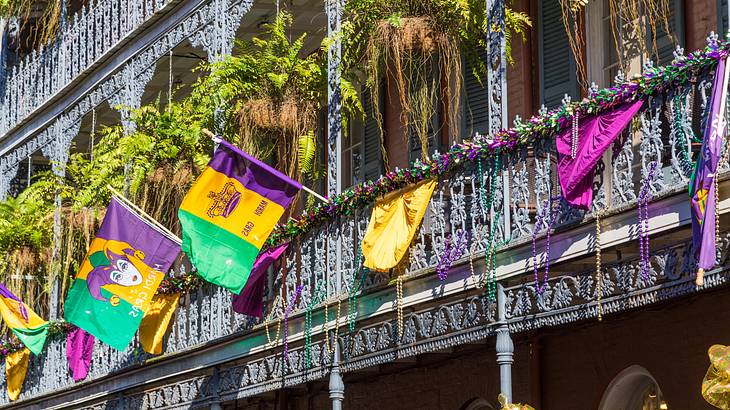
Mardi Gras City
Street parties were a habitual way of celebrating in the French settlements of 18th-century New Orleans. It wasn't until 1857, though, that the first Mardi Gras took place in the city.
That initial small event was organized by a group of students. Every year from then on, the carnival party got bigger and bigger. Today, it's a well-known Louisiana fact that the state is famous for Mardi Gras, with New Orleans being the host of the largest and most popular event.
Land of Dixie
The Land of Dixie became a nickname associated with New Orleans in the mid-19th century. It was in that era the Citizens Bank of New Orleans circulated $10 bills printed with dix.
Dix is the French word for ten. The notes were nicknamed dixies by those who used them. Eventually, New Orleans and the state of Louisiana became known as the land of dixies.
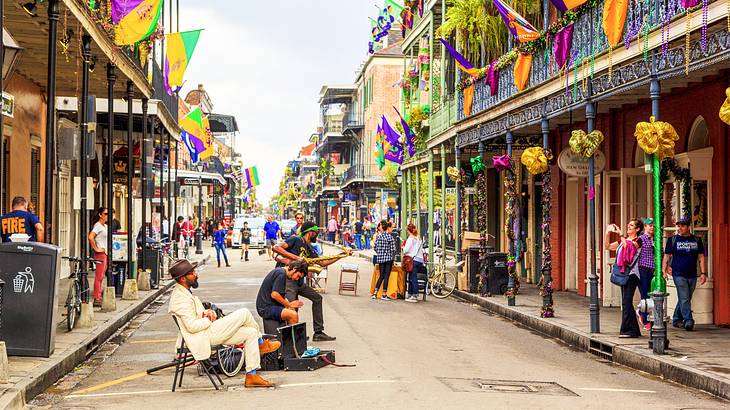
City of a Million Dreams
Another name for New Orleans is the city of a million dreams. The nickname was created by author Jason Berry who wrote a book titled City of a Million Dreams: A History of New Orleans at Year 300.
Berry later went on to produce a documentary with the same title. The award-winning program recounts the significance of jazz music and dancing at the colorful funeral parades held in the city.
Nola
Nola, or NOLA, is an acronym for New Orleans, Louisiana. NO is the initials of New Orleans, and LA is the official abbreviation for the state. It's used frequently in written form to reference the city and is also used as the city's official government URL.
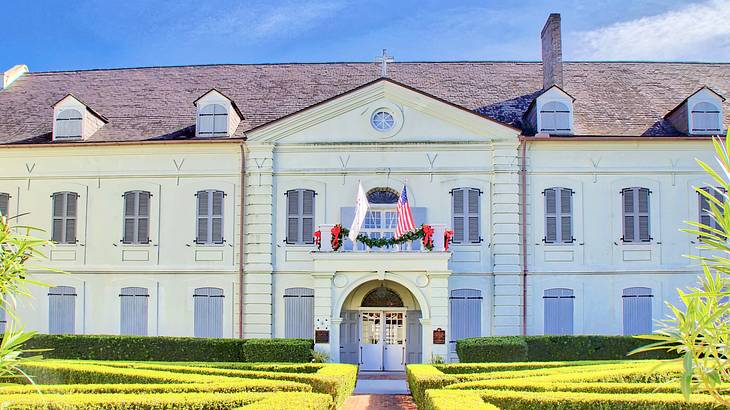
Paris of America
New Orleans was founded by the French and named after a French duke, the Duke of Orleans. Before becoming an integral part of the US, New Orleans was the capital of French Louisiana.
The city's original layout was designed by French planners and engineers, like Adrien de Pauger, and the early structures were built by French architects. French was also the most common language, so the city was often called the Paris of America as it most resembled the French capital.
Northernmost Caribbean City
New Orleans is often referred to as the Northernmost Caribbean City. This is because of the influence migrant and enslaved communities have had on the city's culture since its founding.
That influence extends to the cuisine, the music, and even the local accent, which differs from other cities in Louisiana. In many aspects, New Orleans is more Caribbean than it is American, and that's what makes it the Northernmost Caribbean City.
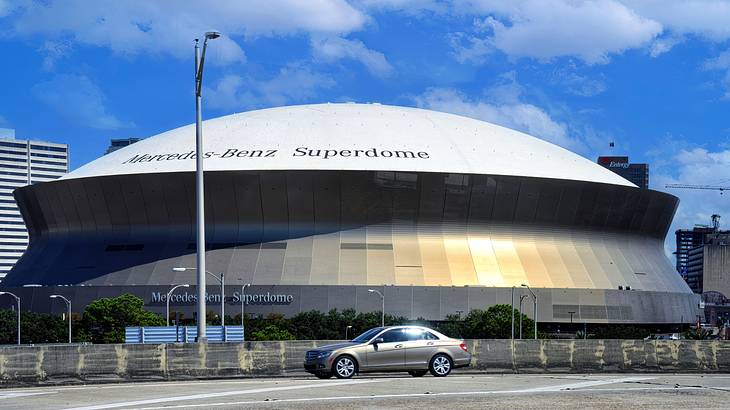
Saint City
As far as New Orleans slogans go, Saint City is one of the easiest to explain. The use of the nickname Saint City can be attributed to the city's football team, the New Orleans Saints. The New Orleans Saints chose their name in honor of the song When the Saints Go Marching In.
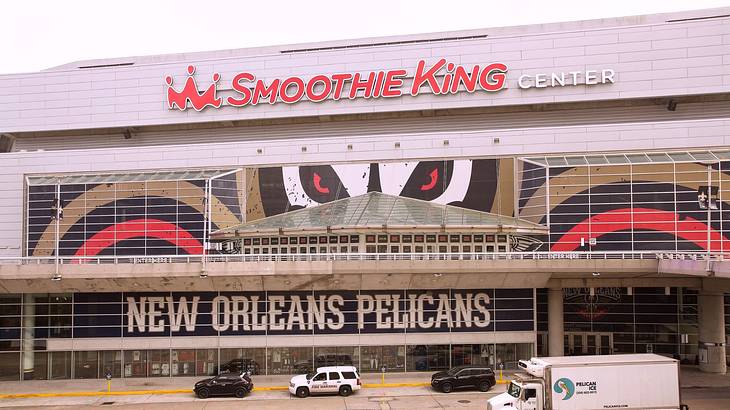
Pelican City
Although their numbers have now diminished, thousands of pelicans once inhabited the coastal lands around New Orleans. The pelican has been used as a symbol for New Orleans since its founding, and the brown pelican is the state bird of Louisiana.
The bird is also connected to the city as the name New Orleans Pelicans was chosen for NOLA's amateur basketball team in 1865. The city's modern-day NBA team reverted to the name and has been called the New Orleans Pelicans since 2013, making Pelican City a nickname that remains associated with the area.
Necropolis
Although it is no longer used, Necropolis was a nickname given to New Orleans in the mid-19th century. During the 1850s, the city had regular outbreaks of yellow fever. The fever plagues were spread by mosquitoes that bred in the surrounding swamps.
Each yellow fever outbreak caused the deaths of an estimated 10 percent of the population. With that many bodies to be buried on a regular basis, New Orleans became known as the Necropolis or City of the Dead.
In Conclusion
New Orleans is one of the most interesting and unique cities in the United States and has many fascinating nicknames relating to its culture and history. From commonly known names, like the Big Easy, to lesser-known monikers, such as the Paris of America, this list should have given you an insight into NOLA's various nicknames and the reasoning behind them.
If you're visiting the city soon, you'll now be able to impress the locals with your in-depth knowledge of New Orleans' history and its many nicknames!
Want to keep exploring?
Subscribe for discounts on tickets and hotels and our latest guides.
Thank you for subscribing
We will be in touch soon with discounts on tickets and hotels and our latest guides.
Want to keep exploring?
Subscribe for discounts on tickets and hotels and our latest guides.
Thank you for subscribing
We will be in touch soon with discounts on tickets and hotels and our latest guides.

